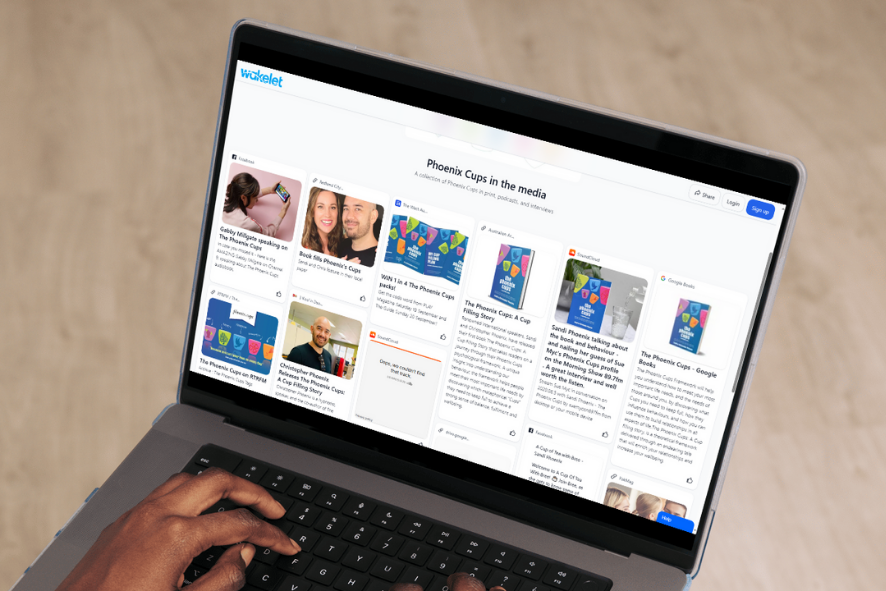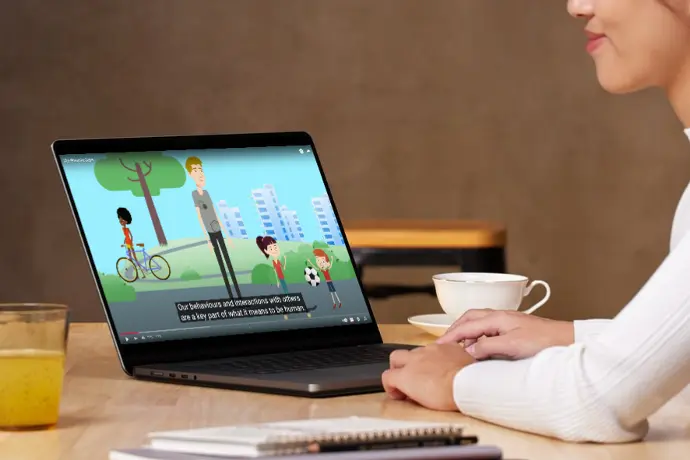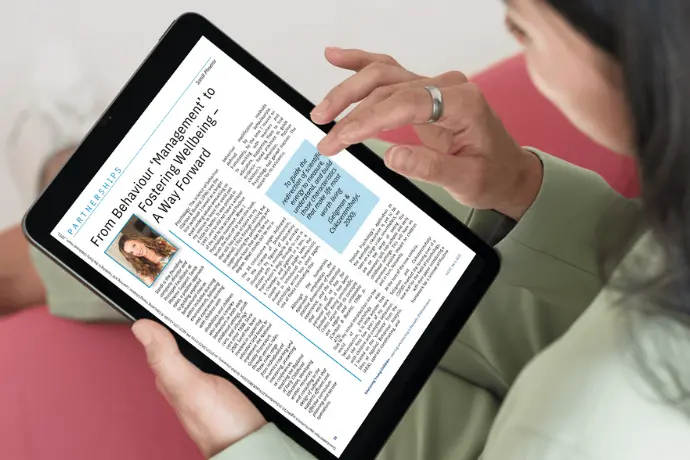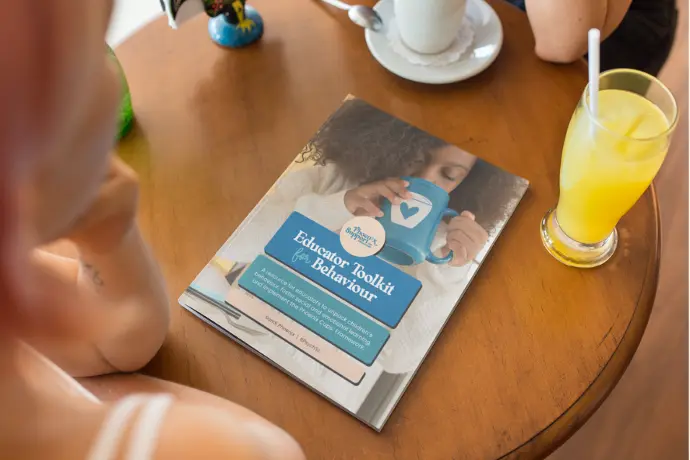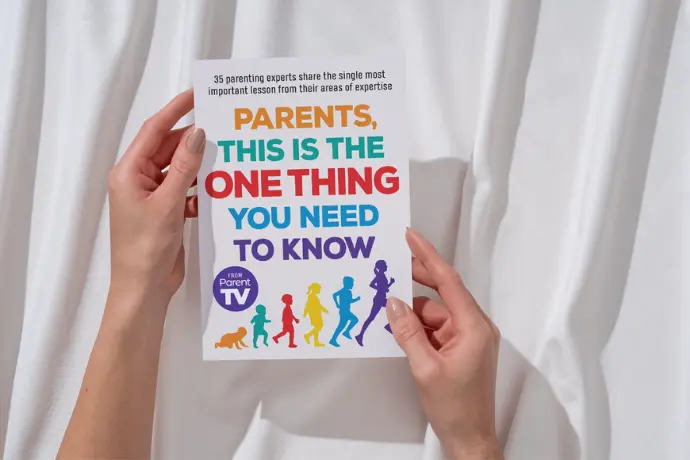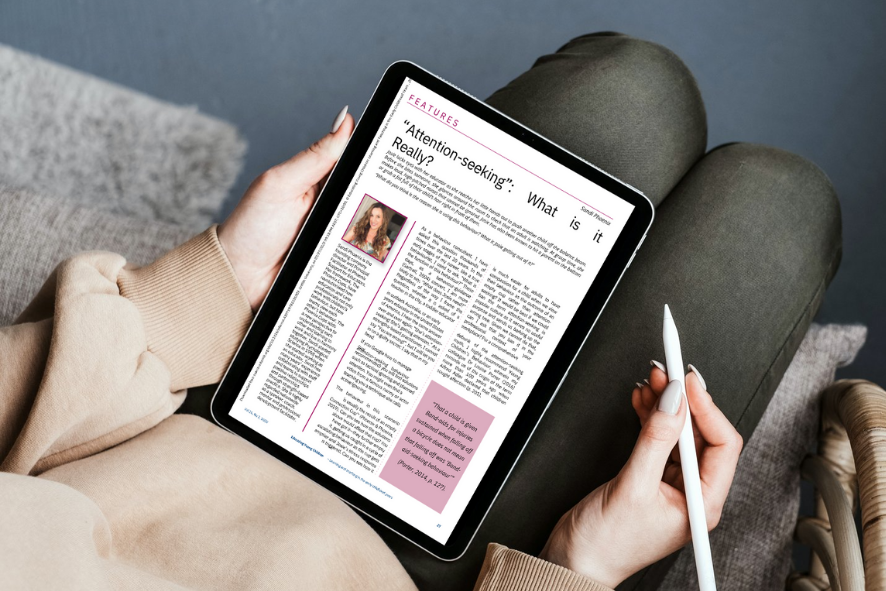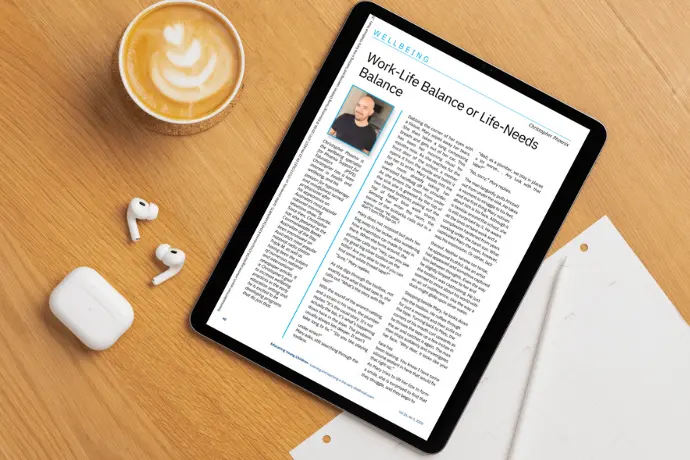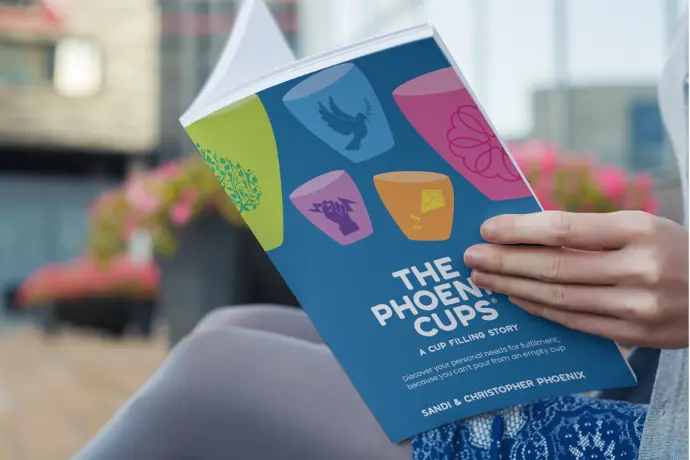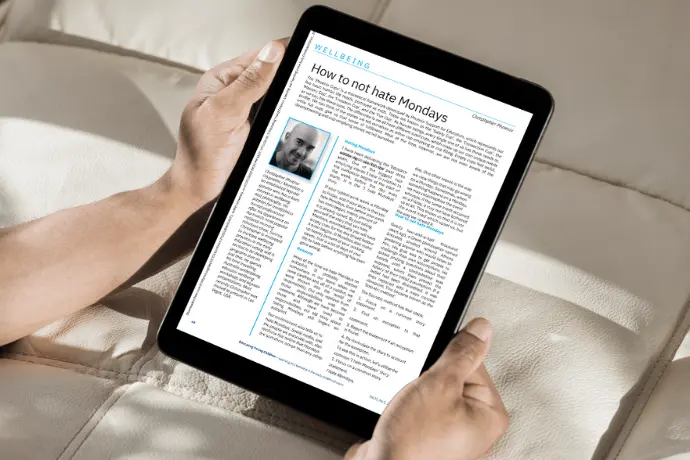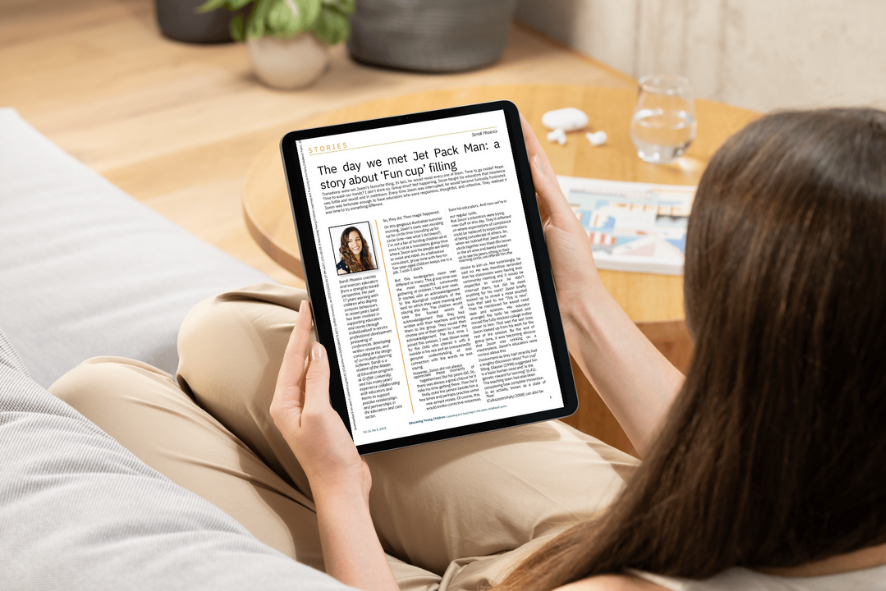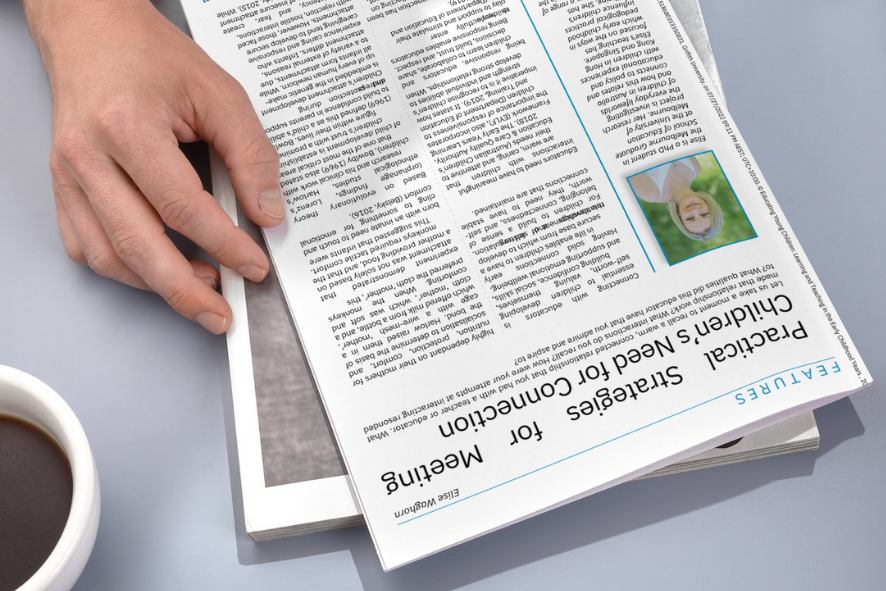Where to Find the Phoenix Cups®
Phoenix Cups in the Media
A collection of Phoenix Cups in print, podcasts, and interviews.
The Cupify This! Podcast
Speakers from all over the world will join our experts to give inspiring talks on various topics. Stay on top of the latest business management trends & technologies
Referencing the Phoenix Cups®
2022
The Phoenix Cups 101
This brief guide in the form of an e-booklet will answer many of your questions around how to get started with the Phoenix Cups framework.
Reference: Phoenix, S. (2022). The Phoenix Cups 101: A Brief Guide to The Phoenix Cups Framework . Wellington Point: Phoenix Support Publishing.
An Introduction to the Phoenix Cups
This is a one minute animated YouTube introduction to the Cups framework.
Reference: Phoenix, C. (2022). The Phoenix Cups. Retrieved from https://www.youtube.com/watch?v=sGyFZ-Nr5ys
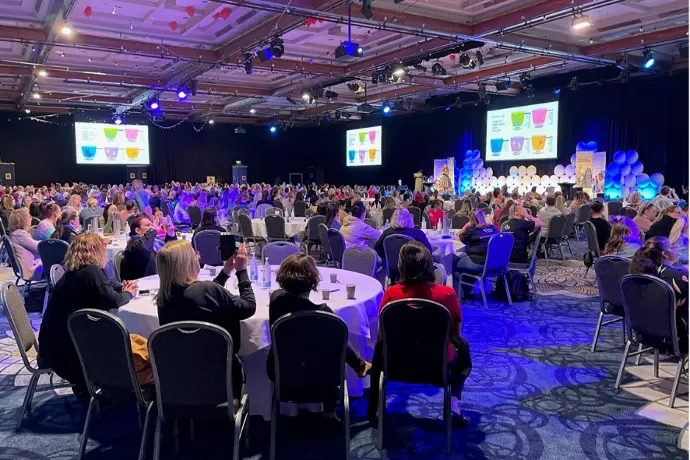
Conference presentation: Is Children's Behaviour ours to manage? How to plan for fulfilment instead of positive behaviour.
This conference presentation was written and delivered by Sandi Phoenix at the Child and Adolescent Mental Health (CAMH) Conference on the Gold Coast in 2022.
View the poster here.
2021
From Behaviour 'Management' to Fostering Wellbeing - A Way Forward
This article was written by Sandi Phoenix for the ECTA Journal.
Reference: Phoenix, S. (2021). From Behaviour 'Management' to Fostering Wellbeing - a Way Forward. Educating Young Children , (Vol 27, 2).
A more "Cups" version of this article can be found in Early Edition here on Page 23.
Reference: Phoenix, S. (2022). From Behaviour 'Management' to Fostering Wellbeing - a Way Forward. Australian Childcare Alliance Queensland: Early Edition , (Spring - 2021), 23.
Educator Toolkit for Behaviour
This workbook was written by Sandi Phoenix about the Phoenix Cups framework and applying it to your practice as an educator. ISBN: 9780648705840, 0648705846
Reference: Phoenix, S. (2021). Educator Toolkit for Behaviour. Wellington Point, Queensland: Phoenix Support Publishing.
Parents, This is the One Thing You Need to Know
Chapter 4 - Connection Seeking by Sandi Phoenix.
Chapter 21 - Parental burnout: You can't pour from an empty Cup - Christopher Phoenix
ISBN: 9781922419583, 1922419583
Reference: Jockel, S., & Ryan, K. (2021) Parents, this is the one thing you need to know. Melbourne: Affirm Press.
2020
Attention seeking: What is it really?
This article was written by Sandi Phoenix for the ECTA Journal.
Reference: Phoenix, S. (2021). From Behaviour 'Management' to Fostering Wellbeing - a Way Forward. Educating Young Children , (Vol 27, 2).
A more "Cups" version of this article can be found in Early Edition here on Page 23.
Reference: Phoenix, S. (2020). “Attention seeking”: What is it really? Educating Young Children: Learning and Teaching in the Early Childhood Years, 26(2), 27–30.
Work-Life Balance or Life-Needs Balance
This article was written by Christopher Phoenix for the ECTA Journal.
Reference: Phoenix, C. (2020). Work-life balance or life-needs balance . Educating Young Children: Learning and Teaching in the Early Childhood Years, 26(2), 40–41.
2019
The Phoenix Cups: A Cup filling story
A fictional novel written by Christopher and Sandi Phoenix to explain the Phoenix Cups framework.
Reference: Phoenix, S., & Phoenix, C. (2019). The Phoenix cups: A Cup Filling Story . Wellington Point: Phoenix Support Publishing.
How to Not Hate Mondays
This article was written by Christopher Phoenix for the ECTA Journal.
Reference: Phoenix, C. (2019). How to not hate Mondays . Educating Young Children: Learning and Teaching in the Early Childhood Years, 25(2), 48–49.
2018
The day we met jet pack man: A story about 'Fun Cup' filling
This article was written by Sandi Phoenix for the ECTA Journal.
Reference: Phoenix, S. (2018). The day we met jet pack man: A story about “fun cup” filling . Educating Young Children: Learning and Teaching in the Early Childhood Years, 24(3), 5–6.
The Advocate for Childhood
This article was written by Sandi Phoenix for the ECTA Journal.
Reference: Phoenix, S. (2018). The advocate for childhood. Educating Young Children : Learning and Teaching in the Early Childhood Years, 24(1), 10–11.
Referencing Phoenix Support for Educators
2022
Practical Strategies for Meeting Children's Need for Connection
This article was written by Elise Waghorn for the ECTA Journal.
Reference: Waghorn, E. (2022). Practical strategies for meeting children’s need for connection . Educating Young Children: Learning and Teaching in the Early Childhood Years, 28(1), 21–23.
Discovering your pedagogy through your documentation
This article was written by Tara Hill, Sand Phoenix and Angie Day for the ECTA Journal.
Reference: Day, A,, Hill, T., & Phoenix, S. (2022). Discovering your pedagogy through your documentation . Educating Young Children: Learning and Teaching in the Early Childhood Years, 28(1), 32–34.
Evidence Base
The Phoenix Cups framework is evidenced by theories, research, and evidence from psychological science and philosophy. Here are some further references of the evidence base:
The theoretical underpinning of The Phoenix Cups framework, and Phoenix Support for Educators professional development programs includes many and varied theoretical ideas and research from the field of psychology, as well as the philosophy that pre-dates psychology.
Some of the theories, evidence, and research used in the program are:
* Self Determination Theory (Chirkov & Ryan, 2001; Chirkov, Ryan, Kim, & Kaplan, 2003; Deci & Ryan, 1987; Ryan & Deci, 2000a, 200b)
* Humanistic Psychology, in particular, Maslow’s hierarchy of needs (Maslow, 1943)
* Philosophy, in particular, continental philosophy such as the work of Schopenhauer and Nietzsche
* Positive Psychology (Csikszentmihalyi, 1990; Kaufman, 2021; Seligman, 2011)
* The guidance approach to working with children’s behaviour – in particular the ideas from Dan Gartrell, Alfie Kohn and the writing and research from Dr Louise Porter (Gartrell, 2003, 2004; Grolnick, 2003; Grolnick, Gurland, DeCourcey, & Jacob, 2002; Hart & Hodson, 2004, 2006; Hoffman, 1960; Kohn, 1996, 1999a, 1999b, 2005; Porter, 1999, 2014, 2016a).
* Intrinsic motivation - Self-determination theory tells us that children are more intrinsically motivated and self-governing when adults grant them autonomy, rather than imposing controls on them. Starting with this premise, research dating back to as early as the 1930s has consistently shown that, compared with controlling discipline, guidance practices achieve more gains in terms of children’s behaviour, emotional wellbeing, relationships with peers and adults, language skills, and intellectual skills. (See, for example, Aguilar et al. 2000; Alink et al. 2008; Battistich et al. 2004; Brody et al. 2001; Campbell & Ewing 1990; Campbell et al. 1996; Coldwell et al. 2006; Combs-Ronto et al. 2009; Côté et al. 2006; Crockenberg & Litman 1990; Denham et al. 2000; Donovan et al. 2000; Emmer & Aussiker 1990; Fergusson et al. 2005; Gaylord-Harden 2008; Gregory & Ripski 2008; Hoffman 1960; Lewin et al. 1939; Loukas et al. 2005; McFadyen-Ketchum et al. 1996; Miller-Lewis et al. 2006; NICHD Early Child Care Research Network 2004; O’Leary et al. 1999; Prinzie et al. 2006; Rimm-Kaufman et al. 2007; Romano et al. 2005; Rubin et al. 2003; Ryan & Stiller 1991; Scaramella et al. 2008; Schultz & Khan 1982; Shaw et al. 2003; Spieker et al. 1999; Stormshak et al. 2000; Tremblay 2004; Tremblay et al. 2004; Underwood et al. 2009; Veenstra et al. 2006.) (For a full review, see Porter, 2014.)
* Glasser’s Choice Theory (Glasser, 1998)
* The content also draws on research findings that children are best prepared for school through a play-based program that fosters self-regulation of their emotions, behaviours, and learning processes and that these skills are more important than specific literacy and numeracy skills (Piotrkowski et al., 2000).
